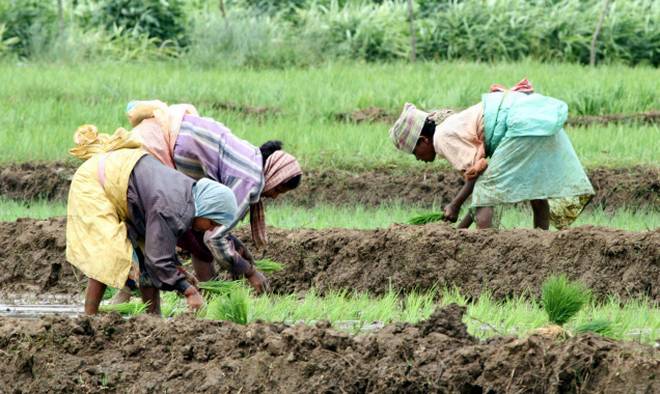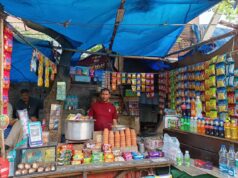If there is one positive side effect of the otherwise devastating COVID-19, it has to be the pace of legislative reforms introduced to correct the agricultural crisis in India. Keeping up with this trend, on 13 July, Karnataka passed The Karnataka Land Reforms (Amendment) Ordinance 2020. Amending 10 sections of the Karnataka Land Reforms Act, 1961, it effectively does two things:
- Doubles the amount of land an individual and family can hold to 20 and 40 units respectively.
- Institutions, societies, trusts, companies, associations and individuals/families with non-agricultural income higher than Rs 25 lakhs can acquire land.
In the last one month, several political and farmer groups have argued that such reforms will “break the back” of the farming community and favour “big firms”. Such criticism is unfounded. We need these and many more reforms, not only in Karnataka but in the entire country.
Archaic agricultural laws have locked in farmers from realising their potential as entrepreneurs and from making business decisions that can raise productivity and income. In no other sector do we have such absurd binding constraints on land use. The laws, still in force in many states, restrict the amount of land one can hold, the sale of land to a non-agriculturist, use of land for non-agricultural purposes, and the leasing of land.
While Karnataka has reformed laws relating to purchase of land, land lease laws continue to be excessively restrictive. For example, only a soldier or a seaman can lease land. Do only soldiers have the right to be away from their farmland?
Perhaps these restrictions were beneficial in the short run, these restrictions have certainly outlived their purpose and have had unintended negative consequences.
Land ceiling laws have rendered agricultural land unproductive. The objective of land ceiling laws was to redistribute land from the rich to the poor and to increase productivity. This has hardly been the case, with the average property distributed to the poor decreasing over the years. Researchers Ghatak and Roy in 2007 found that the land ceiling laws have failed to increase productivity, and this finding continues to ring true a decade later.
In effect, holding-size restrictions have miniaturised land landholdings and reduced what can be eked out from these tiny farms. The income generated from these land holdings is insufficient to support farm families. In 2015-16, the average size of holding was 1.08 hectare. Worse, the average landholding size has steadily reduced since the 1970s.
Tenancy laws have pushed vulnerable tenant farmers to the shadows. Conventional wisdom teaches us that bans only push activities under the rug. The National Sample Survey found that in 2015-16 only 10% of the land was under lease, whereas the erstwhile Planning Commission had reported the number to be as high as 25% in some micro studies. More than a third of the tenants are landless. It is these farmers, the most vulnerable, who are at the mercy of informal contracts. As most policies target landowners and tenancy remains illegal, they do not even benefit from government support programs like input subsidies, credit or insurance facilities.
Restrictions on use and sale of land work against farmer prosperity. State laws also limit who can buy land (Indian resident, individual or company, agriculturist, tribe members) and the accepted mode of transfer (gift vs sale). Consider the example of The Himachal Pradesh Tenancy and Land Reforms Act, 1972 that prohibits sale, gift, will, exchange, lease, mortgage, or tenancy “in favour of a person who is not an agriculturist.” If this is not enough, the Act defines an “agriculturist” as a landowner who cultivates land personally.
Restrictions on the purchase and use of land depress the land price and trap farmers in low-productivity activities. Property that cannot be sold or used freely is of lower value than the property that can be. In a modern open economy, such restrictions should be avoided unless absolutely necessary for environment protection.
Reluctant states will fail to “double farmers’ income” if they don’t reform land laws. While some states have shown interest, the overall pace of reform has been sluggish. In 2016, the NITI Aayog proposed a Model Land Leasing Act that will enable legalisation of leasing. So far, only Uttarakhand has relaxed leasing norms. Maharashtra, like Karnataka, has made legislative amendments to lift the restrictions on buying and selling of land. In 2015, Arvind Panagariya, in ‘Land Leasing: A Big Win-Win Reform for the States’, had urged states to consider such “simple but powerful changes to enhance productivity and welfare all around.” In 2020, once again, we remind states to follow Karnataka’s lead and release the agricultural land from its clutches undeterred by the opposition.
Read more: Unboxing the e-Vidya Scheme for Learning
Post Disclaimer
The opinions expressed in this essay are those of the authors. They do not purport to reflect the opinions or views of CCS.





